December 10, 1877: Capt. J.W. Clous testifies about Ranger Interrogation Techniques before Congress
#OTD in 1877 Army Capt. J.W. Clous testified to Congress that Ranger interrogation techniques violated Mexicans’ and Mexican-Americans’ rights to an extent that “would have led [US troops] into serious trouble, probably a trial before the courts.”
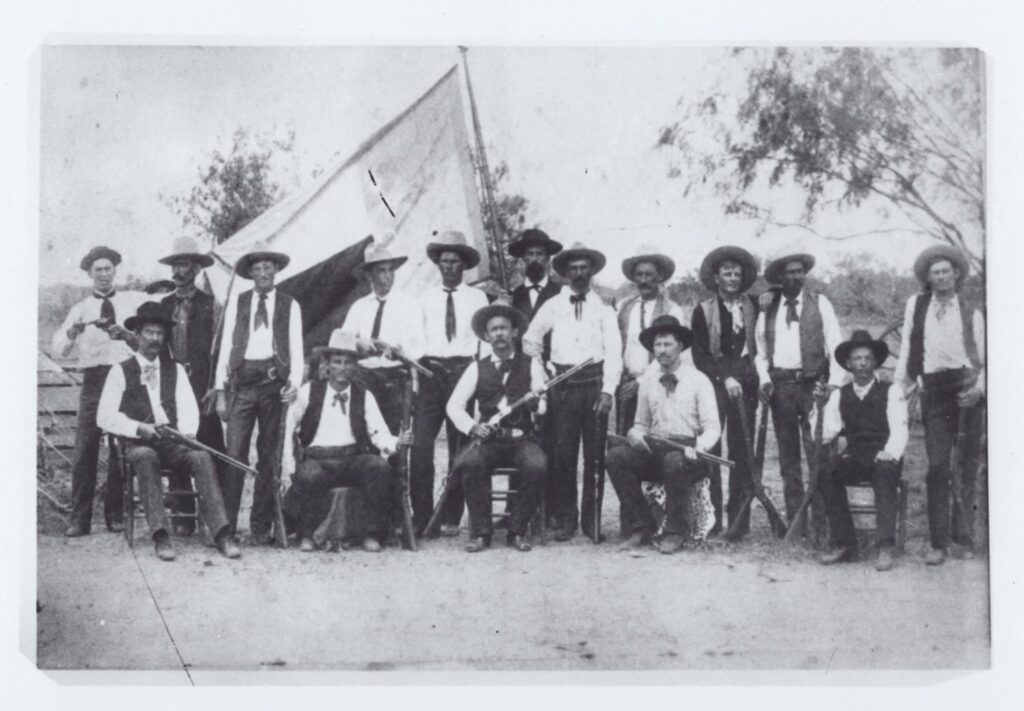
Clous was testifying before the Committee on Military Affairs in Relation to the Texas Border Troubles, a committee set up to investigate cross-border cattle raids and the retaliatory violence that often followed.
CW: Descriptions of torture
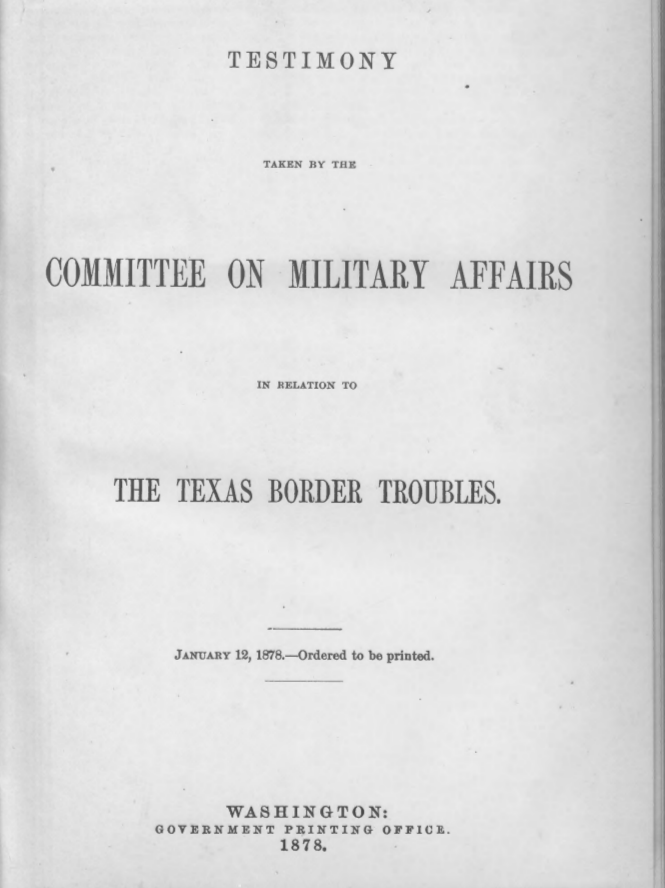
Clous, a captain in the 24th Infantry at Fort Brown, spoke about the difficulty of catching cattle raiders dressed like civilians. US troops had trouble identifying raiders and gathering enough evidence to arrest them.
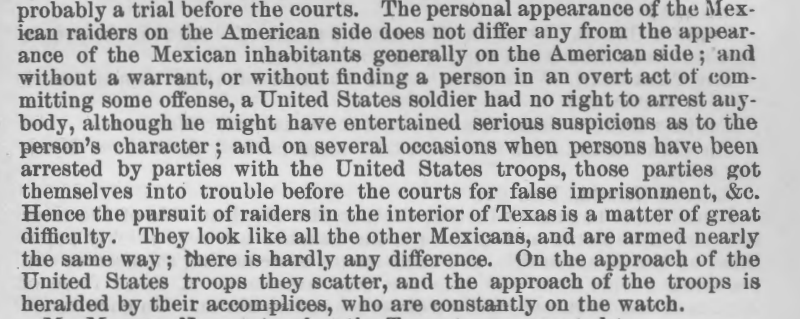
State troops, including Rangers, did not always take such precautions. Clous reported at least one instance in which Rangers choked people for information on raiders’ locations.

Clous’ description is similar to that of former Ranger George Durham in Taming the Nueces Strip, his memoir about serving under Ranger Capt. Leander McNelly. According to Durham, McNelly employed a scout named Jesus “Casoose” Sandoval who tortured suspects for information.
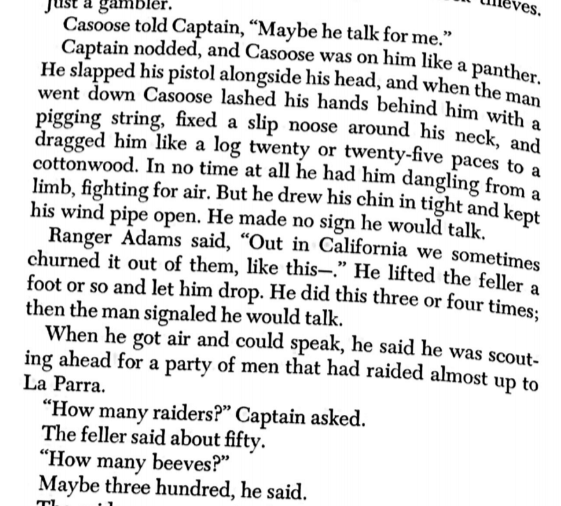

Clous wasn’t the only one who recognized the Rangers’ methods as brutal but effective. In Taming the Nueces Strip, Durham quotes Gen. Edward Ord, who oversaw US troops in Texas from 1871-1875. Ord agreed McNelly’s use of torture was a “big advantage.”
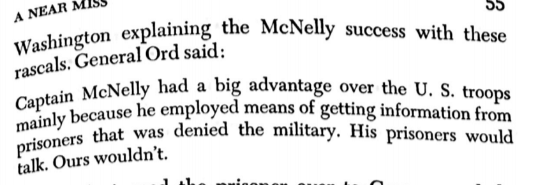
McNelly is in the @txrangermuseum’s Hall of Fame. As of Dec. 2023 his bio mentions that some found his tactics “too aggressive” but takes a generally positive tone, saying his rangers “were very active in suppressing lawlessness in the Nueces Strip.”

The Rangers’ brutal treatment of suspected raiders was well-known in the late 1800s and part of their longer history of extralegal violence against Mexicans and Mexican Americans in the borderlands. You can read the full report here: https://digitalcommons.law.ou.edu/cgi/viewcontent.cgi?article=3760&context=indianserialset
